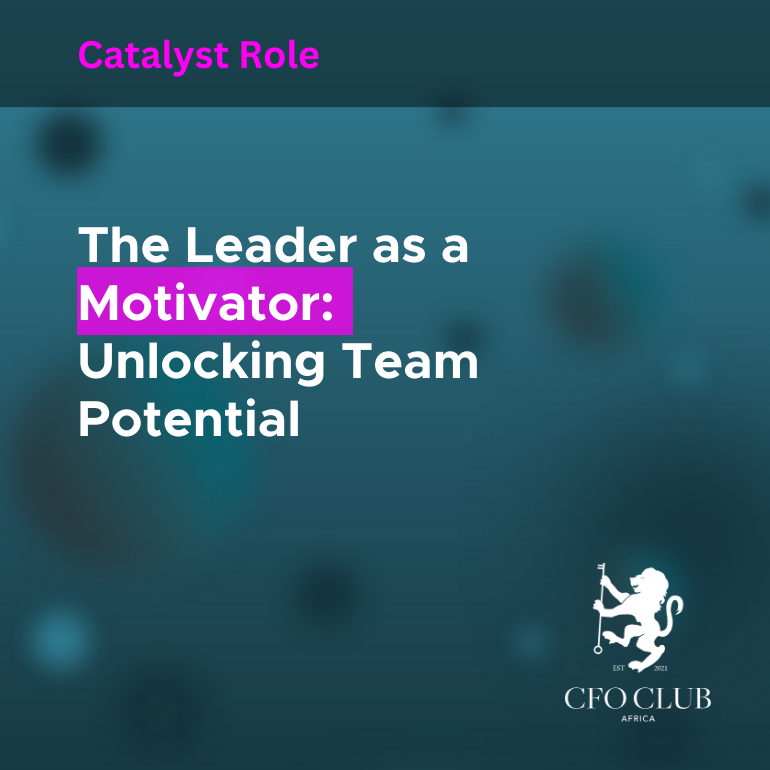The Leader as a Motivator: Unlocking Team Potential
Great leaders understand that a motivated team doesn’t just work harder; they work smarter, think creatively, and stay committed to achieving shared goals. Motivation is not about flashy perks or one-off incentives. Instead, it’s about fostering an environment where people feel valued, inspired, and empowered to give their best.
Set Clear and Achievable Goals
Clarity is key to motivation. When everyone understands the team’s objectives and how their individual roles contribute to success, they are naturally more driven. Imagine a project where timelines, responsibilities, and desired outcomes are clearly communicated. A designer working on a marketing campaign feels more connected to the team’s success when they understand how their visuals directly influence customer engagement.
Breaking larger goals into smaller, actionable steps also keeps momentum alive. Teams that celebrate reaching milestones along the way are more likely to stay motivated for the long haul.
Recognize and Reward Efforts
Appreciation can transform a workplace. Acknowledging someone’s hard work doesn’t require extravagant gestures—a few genuine words of recognition can have a lasting impact. When a team wraps up a challenging project on time, taking a moment to highlight individual contributions during a meeting can energize the entire group. Consistent recognition not only boosts morale but also reinforces positive behaviors.
Celebrating wins, both big and small, is equally important. Wrapping up a successful quarter with a team lunch or a shared acknowledgment from leadership fosters a sense of pride and belonging.
Lead by Example
Leaders set the tone for their teams. Your actions speak louder than words, and your attitude can either energize or demoralise those around you. In a situation where deadlines are tight, your willingness to jump in and assist the team shows commitment and reinforces the idea that everyone is in it together.
Consistency in your actions also builds credibility. A leader who consistently demonstrates resilience, positivity, and accountability inspires their team to mirror those qualities.
Encourage Personal and Professional Growth
Motivation thrives in environments where people see opportunities to learn and advance. Assigning challenging tasks that stretch abilities, offering mentorship, or providing access to training programs shows your investment in their development. A junior staff member who expresses an interest in project management could be given responsibility for coordinating a small initiative. Such opportunities inspire confidence and a sense of progression.
Growth doesn’t always mean promotions. Encouraging team members to explore different skills or take on varied responsibilities adds excitement and keeps work engaging.
Build Trust Through Transparency and Communication
Open and honest communication lays the groundwork for trust, which is a cornerstone of motivation. When issues arise, addressing them openly fosters collaboration rather than blame. Imagine a team facing a challenging deadline. By openly discussing the obstacles and inviting suggestions, you demonstrate trust in their abilities and encourage creative problem-solving.
Consistent check-ins, where you listen to concerns and provide constructive feedback, create a safe space for dialogue. This approach helps individuals feel valued and connected to the team.
Create a Positive Work Environment
A supportive and inclusive atmosphere encourages people to bring their best selves to work. Whether it’s fostering camaraderie through team-building activities or simply maintaining an open-door policy for questions and ideas, a positive environment keeps motivation high.
Physical surroundings matter too. Comfortable, well-equipped workspaces, coupled with flexible policies like remote work options, can significantly enhance motivation. Beyond this, cultivating an environment where diversity is celebrated and everyone feels respected ensures that people are not just working, but thriving.
Inspire a Sense of Purpose
Connecting daily tasks to a larger mission gives work meaning. When people understand how their efforts make a difference, they are more likely to feel fulfilled and motivated. A software developer working on a healthcare app, for instance, might feel more inspired knowing their work improves patients’ access to care. Regularly sharing the impact of your team’s work—whether through customer feedback or project outcomes—reinforces this sense of purpose.
Final Thoughts
Motivation isn’t about quick fixes or generic strategies—it’s about authentic leadership. By setting clear goals, showing appreciation, leading by example, and fostering trust, growth, and purpose, leaders can create an environment where everyone is excited to contribute. A motivated team doesn’t just meet expectations; they exceed them, taking pride in their work and their role in shared success. Leadership is not just about steering the ship—it’s about inspiring the crew to sail forward with confidence and determination.

